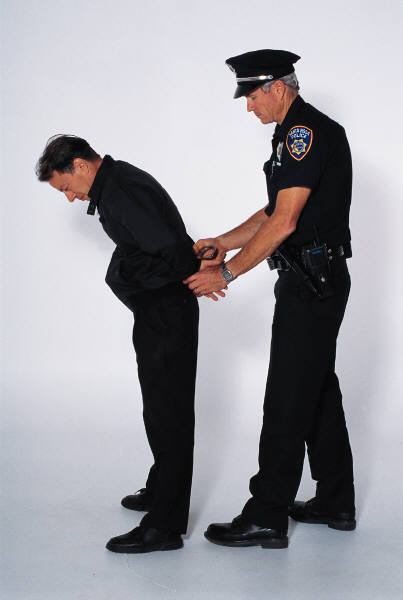 The odds are that at some point in your
life, either you or someone you know will be arrested and charged with a crime.
Your personal freedom depends upon many factors, such as a proper investigation,
use of expert witnesses, plea bargaining strategies, and proper trial technique.
Both Louis and Brian Dell have the knowledge and over a decade of trial
experience in defending people against all kinds of criminal charges.
We understand the complexities of the legal
system and are prepared to fight for your freedom. Please feel free to
browse through the frequently asked questions listed below.
Table of Contents
The odds are that at some point in your
life, either you or someone you know will be arrested and charged with a crime.
Your personal freedom depends upon many factors, such as a proper investigation,
use of expert witnesses, plea bargaining strategies, and proper trial technique.
Both Louis and Brian Dell have the knowledge and over a decade of trial
experience in defending people against all kinds of criminal charges.
We understand the complexities of the legal
system and are prepared to fight for your freedom. Please feel free to
browse through the frequently asked questions listed below.
Table of Contents
- The police want to question me about a crime.
Should I cooperate?
- I'm on a road trip with some friends. I
get stopped for speeding. The officer asks me if I have any problems
with him searching my vehicle. What should I do?
- I've been charged with a crime. What next?
- I know I did the crime. If I cooperate, will
that lessen my punishment?
- What is a misdemeanor?
- What is a felony?
- Can I have my criminal conviction removed from my
record?
Let's put this bluntly: No.
The police are trained to extract information from you. The officers
may be pleasant or friendly; mean and abusive; they may play good-cop/bad-cop;
whatever the case, they will attempt to elicit information which they can use to
connect you to a crime. The average person mistakenly believes that the
officer is the judge or jury and will weigh any statements made in order to
determine whether to detain or arrest the person--don't you make that mistake.
Consider this: when the police are questioning you, they already suspect you
have committed a crime. Your words can only confirm their suspicions--your
silence will give you the most protection. Ask for a lawyer immediately,
and do not talk to the police--ever.
Kindly tell the officer you do not agree to
a search of any kind. If you are asked what you have to hide, simply tell
the officer you do not wish to answer any questions. You see, if you
invite the police to search you or give them permission to search you or your
car, if they find something, they will prosecute you for it. What if it
isn't yours and you didn't put it there? Who is the jury going to believe,
you or the police? It won't make any difference who put it there if the
police say they found it in your possession. So refuse to let them look.
Don't panic. Call a lawyer immediately. If you are in jail, your
attorney can assist you in contacting a bail bondsman and arranging the
assistance of friends and family members in managing your affairs until you are
released.
No. The police do not have the power to reduce your punishment, only
the prosecutor and judge have such abilities. Yet another reason not to
cooperate with the police. An experienced defense attorney can negotiate
with the prosecution in order to obtain a reduced or fair sentence.
Misdemeanors are crimes where the maximum possible jail term is no greater
than one year. Typically, these include first time DUIs, minor assaults,
petty theft, trespass.
Back to Top
Felonies are crimes where the maximum possible jail term exceeds one year.
These are serious crimes such as grand theft, robbery, homicide, sex crimes.
Even after you have done your time and completed all of the terms of probation
or parole, you will likely have lifelong consequences such as the inability to
vote, difficulty in obtaining employment, immigration problems. In the
case of sex crimes, you will be required to register with the local authorities
for life.
In some cases, the answer is yes. If you have successfully completed
the terms and conditions of your misdemeanor sentence, your attorney can lead
you through the process of "expunging" or erasing your criminal record.
Once your criminal conviction has been expunged, it is as if you have never been
convicted of that crime. Talk to an experienced attorney for more details
about expunging your record.
|